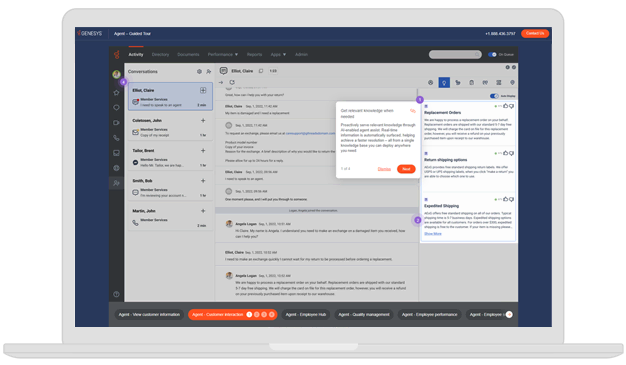Artificial intelligence (AI) myths are common misconceptions or misunderstandings about artificial intelligence and its capabilities. These myths include beliefs like “AI will replace all human jobs,” “AI is always unbiased,” or “AI doesn’t make mistakes.” Such oversimplifications often lead to unrealistic expectations or fear, hindering adoption and innovation.
Clarifying these myths is essential for business leaders and end users alike to make informed decisions. By addressing concerns with accurate information — like the need for human oversight and the importance of ethical design — organizations can more confidently harness AI’s potential.
“There’s a ‘set it and forget it’ myth that lingers with artificial intelligence. Operational managers read about machine learning and training sets — and they play around with AI toys like ChatGPT. With contact center bots, some managers think that once the bot is created, the work is done. They assume the bot will magically know what to say — even when customers have issues that the bot wasn’t trained to address. In the meantime, customers don’t know what the bot is capable of and ask it to do more than it can.”
Rahul Garg, VP of Product, AI and Digital Self‑Service, Genesys
AI myths for enterprise contact centers
There are several common myths about using AI in enterprise contact centers — and believing them can lead to poor decisions. Here are a few examples:
- AI will replace all human agents. While AI can handle simple tasks, human agents are still needed for complex or emotional situations. AI is meant to assist, not replace, people.
- AI is always accurate. AI tools are powerful, but they can make mistakes, especially if trained on bad data. Businesses must regularly test and improve their AI systems.
- AI works the same for every company. In reality, AI must be customized to fit a company’s goals, systems and customer needs. A one-size-fits-all approach doesn’t work.
These myths matter because they can lead companies to overtrust or underuse AI. Believing the wrong things may cause poor customer experiences, wasted money or even legal risks, especially for enterprise businesses with increased visibility compared to smaller businesses. When companies understand what AI can and can’t do, they can use it wisely to improve service, support agents and make better decisions.






![Resource thumb [modivcare]](https://www.genesys.com/media/resource-thumb_Modivcare.webp)